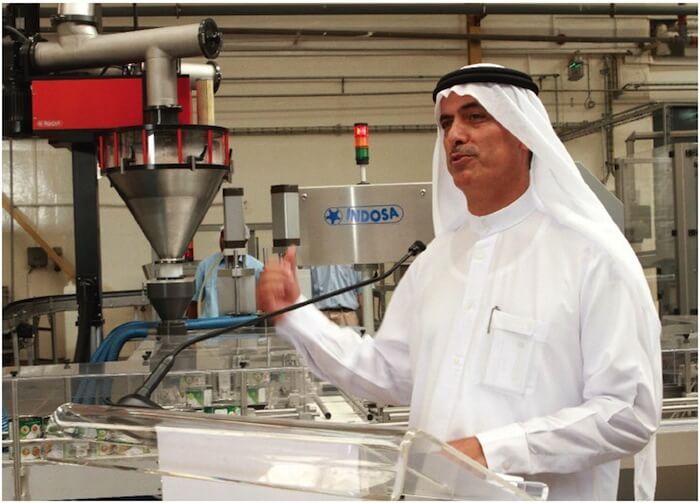Interview with Essa Al Ghurair, Al Ghurair
Al Ghurair is one of the most prominent family business names in the Middle East. Diversified into many activities ranging from heavy industry to financial services and employing thousands of people, Al Ghurair has successfully expanded its activities all over the world. Tharawat magazine speaks to Essa Al Ghurair, Vice Chairman of Al Ghurair Investments, and Chairman of Al Ghurair Foods, about the family’s regional and international achievements over the past decades.
Al Ghurair was founded in 1960 by your late grandfather Ahmed Al Ghurair. What do you think were the ingredients that made his vision so very successful and turned his business into the multinational conglomerate it is today?
The most important ingredients were and still are trust and commitment. At the time of my grandfather a handshake used to mean more than anything else. These values were instilled in all the following Al Ghurair generations. None of us would ever dishonour a commitment. Even if it is at times difficult, our forefathers have taught us to value the trust that people put in us above anything else. Always delivering on our promises has built our family reputation and, therefore, our brand.
I always tell my children that trust is like a glass, which they must try to protect with all their might. Sometimes this means that they have to fall and hurt themselves in the process, but it is paramount not to break the glass because once it is broken it is very difficult to mend it. When I say ‘hurt themselves’ this could mean for instance loosing some money, but ‘breaking the glass’ would mean that the family reputation is tarnished, which can signify damage beyond repair.
Is it difficult to transmit such values from one generation to the next?
The younger generation needs a certain amount of repetition. Of course, when you want to transmit values your reasoning has to be sound because only then will it stick in their minds. You give them examples of actions and consequences and how they can learn from them. This hopefully is a wake-up call. In the beginning the young generation can be a little hasty in their decisions but we can put on the breaks by reminding them of our values.
Even before the official foundation of the company, the Al Ghurair family has had a history of doing business in the region for more than a century. What was the main reason for the group to internationalise its activities?
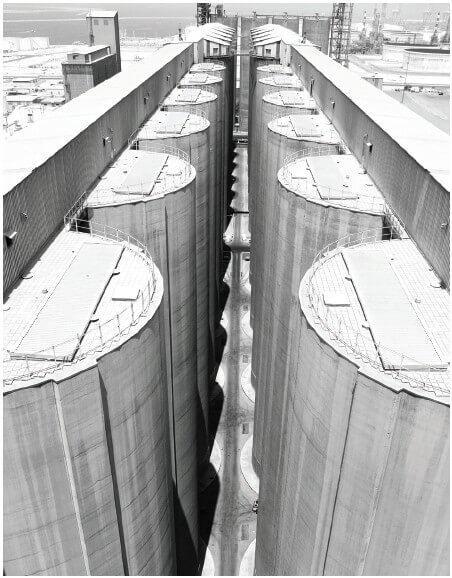
In the past and before the company was formally established, communication was difficult. I remember that is used to take my grandfather 20 days to travel from Dubai to Karachi! Imagine, today, how much business you can do in that same time. Doing business was complicated in those days and yet they were trading with Iraq and Iran. My uncle even used to sail from the UAE to East Africa. We have always been traders and travellers. Founding a real commercial organisation was only possible after the UAE formation. The bank and financial services started even a little before that point; my grandfather and the family established the bank in 1967. Later on, they slowly started to build branches for the bank outside of the UAE to enable connections with the whole world. They were opportunity oriented and understood that they had to go abroad to grow the business.
In fact, it all happened because of the collapse of the pearling industry and the deep depression that followed for Dubai. The pearl industry at that time was much like the oil industry is today. When it all broke down what used to be sold at at 100 was now sold at 10. With the climate being such, our family felt it was time to assure growth in other countries. So at the time we internationalised out of necessity but it brought us many opportunities. With the UAE uniting we started to establish our banking activities and then branched out into other industries. We used to run agencies for international brands but we soon focused on developing our own brands and entered further into industry and manufacturing. Trade is one thing, when you have to deal with other people’s products, but trading with your own products is a different experience. We wanted to specialise and we wanted to manufacture products that were locally required.
From your experience, what are the main challenges and opportunities that a family business faces in expanding outside its country of origin?
I think the biggest challenges are rules and regulations of the country you enter and finding the right partners. In any new place, initially, you don’t know what to do and where to go, so having a good partner is crucial. It enables you to bridge some of the difficulties that are inevitably part of entering a new market.
A business partner has to be chosen according to his local access to consumers and his understanding of the products. However, it is different from country to country. The attitude of people and the way they do business varies. Actually, it even varies within one country, from city to city and now that I think about it, sometimes from one part of a city to another as well.
For example, we have a supermarket here in this part of the city and we end up having very different demands on products than in the same supermarket a few kilometres further away. You have to understand the specificities of a locality, be it a country or a city, and adapt your strategy to that, whilst of course respecting rules and regulations.
Do you feel that there are certain industries that are harder to internationalise than others?
I feel the bigger the industry the easier it is to replicate it elsewhere. The reason is that there will be fewer competitors. If you transfer a smaller industry anybody can copy it and compete with you. Ideally, you have a niche product that no one else provides. You always have to maintain that edge; for instance, if as a bank you enter a new country, you will be quite alone and not many people will be given a banking license. Therefore you will have a competitive advantage. Now imagine you have an office for IT solutions; it is a fact that in most markets you will have many competitors. In order to compete under such circumstances you have to be up-to-date and have the latest information and minimise your cost. If, on the other hand you are in a big industry, for example if you own a cement factory or are part of the petrochemical industry, there are not many people competing with you. The number of new businesses established in that area will be very low and easily detectable.
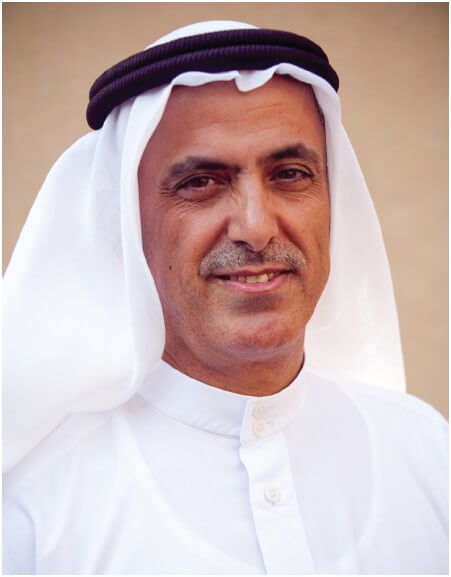
Al Ghurair Investments includes many different industries. For example the renowned Mashreq Bank is the UAE’s fourth largest bank by assets and it has branches in New York, London, Bahrain, Qatar, Egypt, India and Hong Kong. How do you communicate family values across borders and make sure that the people who work for you still have the sense of belonging to the family business?
My father and my brother, Abdulaziz, are in charge of the bank and they visit the international offices where they talk to employees. This way they transmit the vision personally and see if the vision and values of the offices still align with the family business. Actually, most family members do this; we travel to places and supervise that all operations are conducted according to our value system and management style. By having family members do this personally we transmit a much more credible image to our employees. They can see that we live according to these values and are not just asking them to do it. Personally, I often travel to Sri Lanka and Lebanon and I will be travelling to Sudan shortly for exactly this purpose.
Recently, we have also established something, which I call ‘open communication’ whereby anybody within the company can ask us (the family) questions and discuss work-related topics. I always tell our employees that during those open communication sessions they are immune and can ask anything they like.
Under your leadership, Al Ghurair Foods, established in 1976, has grown into a high-tech food enterprise with operations in the UAE and overseas. What do you believe were the milestones that have led to this success?
We have grown out of a necessity. We wanted to close a gap in the market. In 1976, we started our first flour mill. Our production rate was 100 ton/year. Before that the flour used to come from Australia in jute bags all the way to the UAE, so it took a lot of time and the quality suffered as well. We came up with an innovative idea, which was fresh flour from our own mills. There was resistance in the beginning because the traders didn’t like that we were competing with them. Eventually, people saw the difference and then they started trusting us. We kept on expanding and expanding and then we went into animal feeding, oil, and maize milling, which were not available easily in our part of the world. We moved to crushing plants, which we do now on a large scale. We always try to come up with innovative and creative solutions to the gaps that we see in the markets.
Similarly, when we started the cement factory, there was no one else in the industry. Another example is the Al Ghurair Center that was built in 1978; we started this shopping centre and it was the first one in the whole Middle East. Now it is called Al Ghurair City. Of course you have the Al Hamidiyye Bazar in Syria or the covered bazar in Istanbul but these were not shopping centres, as we know them today.
In the food section we have been building on our innovation and are now making burgul, oats, canola oil, and crush soy beans to produce oil, which no one used to do in the Gulf before.
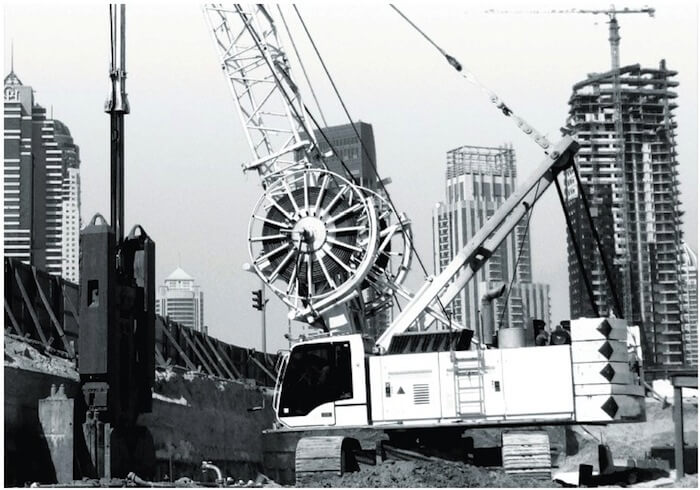
How do you foster this innovation and how do you keep employees informed?
We have an internal magazine and we are frequent in meeting with employees, so we try to communicate with them as much as and as closely as possible. I prefer to speak directly to employees; face-to-face is much more interactive. We allocate two hours to our open communication sessions to make announcements and then take questions and listen to statements. I like this concept of open communication and we are trying now to do it twice a year. Like this, family members are directly interacting with employees. Sometimes it is difficult to answer the questions. At the end of the session, all the questions and answers are written down and then circulated to everybody. If there is a question that we cannot answer on the spot we circulate it until someone finds the answer and we send it round again. I believe that this type of transparent communication can avoid a lot of misunderstanding. I remember one time, when we went through some organisational change rumours started circulating immediately. But once you sit d?wn, talk to your staff and explain everything, rumours disappear on their own. It is important for people that the top management makes clear statements on how the company is doing so that everyone can calmly focus on their work.
Innovative ideas from employees used to be compensated with money here at Al Ghurair. We used to put out small sums as an incentive for people to come up with new suggestions for improvement. It is good for everyone to be stimulated this way and to think out of the box. This is still going on but it has slowed down, and we sometimes need someone to encourage people.
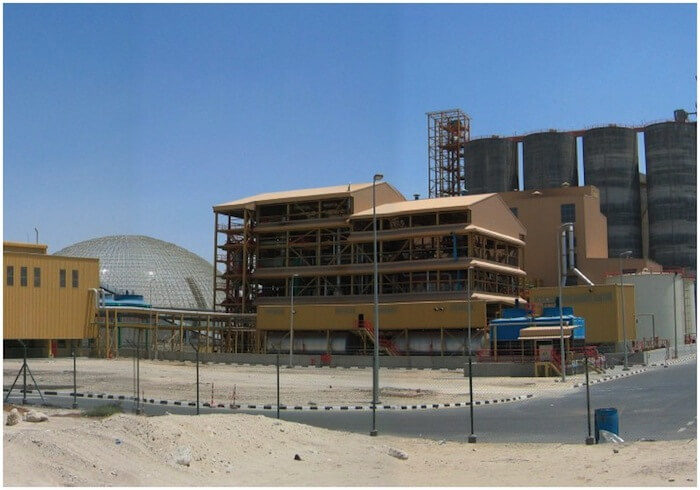
Al Ghurair is renowned for its charitable activities. What is the importance of such philanthropic activities in the family businesses?
What we tend to do is to accumulate revenues in one place, at our headquarters, and then give not only locally but also internationally to charitable goals. We reach causes from Bangladesh to Kenya. I myself go to Albania and Spain and my father focuses on Kazakhstan and central Asia.
So we go around and help people wherever we can. But it is independent of where the business has its units and factories. Our philanthropic activities are directed to where the needs occur. We do not want to limit it only to the communities that we are active in, because there are many more places in the world that need our help.
Tharawat Magazine, Issue 11, 2011


